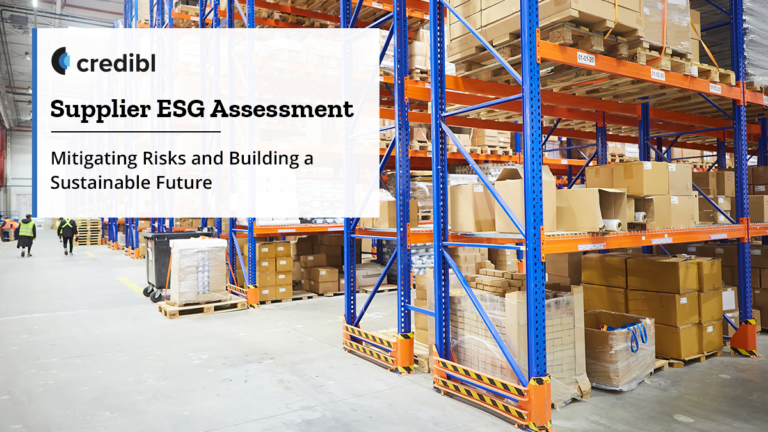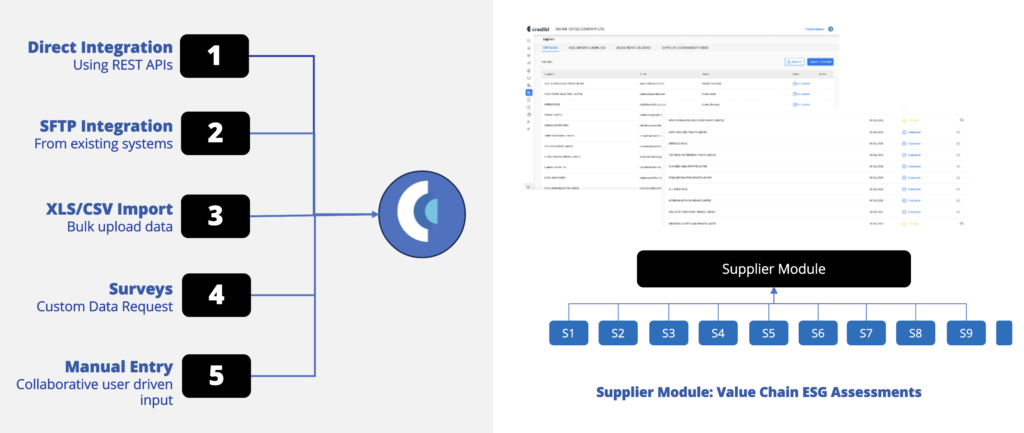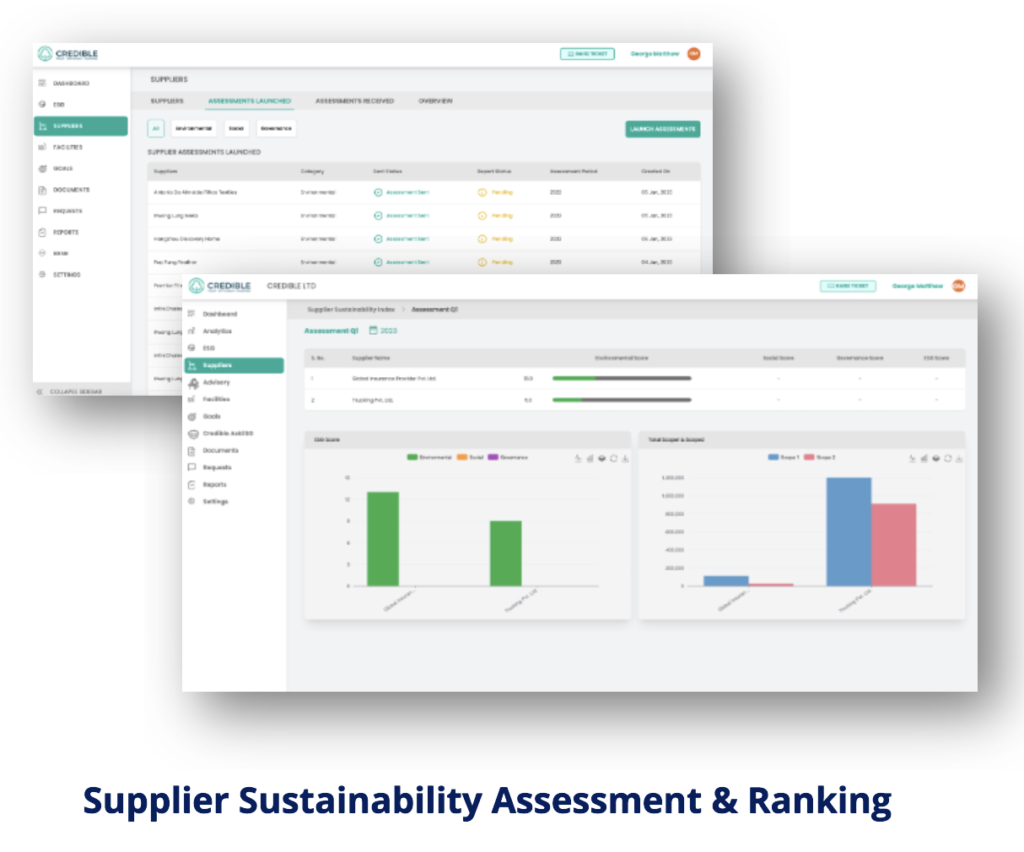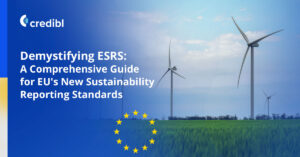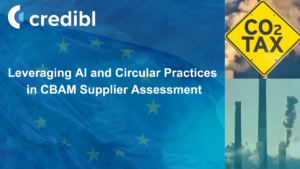In today’s rapidly evolving business landscape, environmental, social, and governance (ESG) factors are no longer just buzzwords. They are critical considerations for companies looking to operate sustainably, manage risk, and gain a competitive edge.
One crucial aspect of a comprehensive ESG strategy involves assessing the ESG performance of your suppliers. This blog post will examine the world of supplier ESG assessments, outlining their purpose, benefits, best practices, and ultimately, demonstrating their importance in building a more sustainable future.
What is a Supplier ESG Assessment?
Imagine your company as a single link in a long chain – the supply chain. A supplier ESG assessment acts as a tool to evaluate the ESG practices of other companies within this chain, focusing on:
- Environmental: Energy consumption, waste management, pollution control measures, etc.
- Social: Labour practices, human rights, diversity and inclusion, etc.
- Governance: Ethical business practices, anti-corruption measures, board diversity, etc.
How AI-powered Supplier Assessment Can Help
The integration of Artificial Intelligence (AI) into supplier ESG assessments has revolutionized the way companies evaluate their supply chains. AI-powered supplier assessment can significantly enhance the efficiency and effectiveness of this process:
- Advanced Data Analysis: AI algorithms can process vast amounts of data from various sources, including supplier self-assessments, third-party audits, and public databases. This capability enables companies to gain deeper insights into their suppliers’ ESG performance and identify potential risks more accurately.
- Real-Time Monitoring: With AI, companies can monitor their suppliers’ ESG performance in real time. This continuous oversight allows for prompt identification of issues and swift action to address any concerns, ensuring ongoing compliance with sustainability standards.
- Predictive Analytics: AI can help companies anticipate potential ESG risks by analysing patterns and trends in supplier behaviour. This predictive capability enables proactive risk management, allowing businesses to mitigate potential issues before they escalate.
- Scalability: As companies expand their supplier base, AI can easily scale to accommodate the growing volume of assessments. This scalability ensures that businesses can maintain rigorous ESG standards across their entire supply chain, regardless of size.
By leveraging AI-powered supplier assessments, companies can enhance their sustainability efforts, improve risk management, and drive more informed decision-making. This technological advancement represents a significant leap forward in the pursuit of a more sustainable and responsible supply chain.
Benefits of Supplier ESG Assessment
The advantages of implementing supplier ESG assessments are manifold. They enable businesses to mitigate risks associated with regulatory non-compliance, environmental disasters, and social controversies. Moreover, companies prioritising ESG criteria in their supply chain can enhance their brand reputation and build trust with consumers increasingly conscious of sustainability. By promoting transparency and accountability, businesses can also foster stronger, more resilient supply chain relationships.
Implementing supplier ESG assessments offers a multitude of benefits, including:
- Reduced Risk: Identifying and mitigating potential risks associated with your suppliers’ poor ESG practices, such as reputational damage, supply chain disruptions, and legal liabilities.
- Enhanced Sustainability: Contributing to your company’s overall sustainability goals by promoting responsible practices throughout your entire value chain.
- Improved Efficiency and Cost Savings: Identifying inefficiencies and non-sustainable practices within your supply chain, leading to cost savings and operational improvements.
- Competitive Advantage: Demonstrating strong ESG practices across your supply chain can enhance your reputation and attract ethical investors who value responsible business practices.
Best Practices for Supplier ESG Assessments
To ensure an effective and impactful supplier ESG assessment implementation, consider these best practices:
- Define clear objectives and expectations: Align your assessments with your company’s specific sustainability goals and values.
- Choose appropriate assessment methods: Select methods based on factors like supplier size, industry, and risk profile.
- Engage and collaborate with suppliers: Foster open communication and collaboration throughout the assessment process, providing guidance and support when needed.
- Monitor and continuously improve: Track progress, address identified gaps, and continuously refine your assessment process for long-term success.
Integrating Supplier Assessment for BRSR Compliance
In India’s evolving sustainability landscape, the Business Responsibility and Sustainability Reporting (BRSR) framework has become a cornerstone for corporate transparency and accountability. Supplier assessment plays a pivotal role as companies strive to align with BRSR Core and Comprehensive requirements.
By evaluating the ESG practices of suppliers, companies can ensure that their supply chain adheres to the principles of ethical business, environmental stewardship, and social responsibility outlined in the BRSR framework. This alignment not only enhances compliance but also fosters a culture of sustainability throughout the value chain. By integrating supplier assessment into their BRSR reporting strategy, businesses can provide a more comprehensive and accurate portrayal of their sustainability efforts, reinforcing their commitment to responsible business practices.
Conclusion
Supplier ESG assessment is a critical step in achieving sustainable business practices. By integrating supplier ESG assessments into your company’s practices, you can proactively manage risk, contribute to a more sustainable future, and leverage ESG for a competitive edge. Remember, a sustainable supply chain is not just beneficial for your company; it contributes to a healthier planet and a more responsible global business landscape.
Ready to get started with supplier ESG assessments? Connect with our experts to learn more about our customised supplier ESG solutions.


